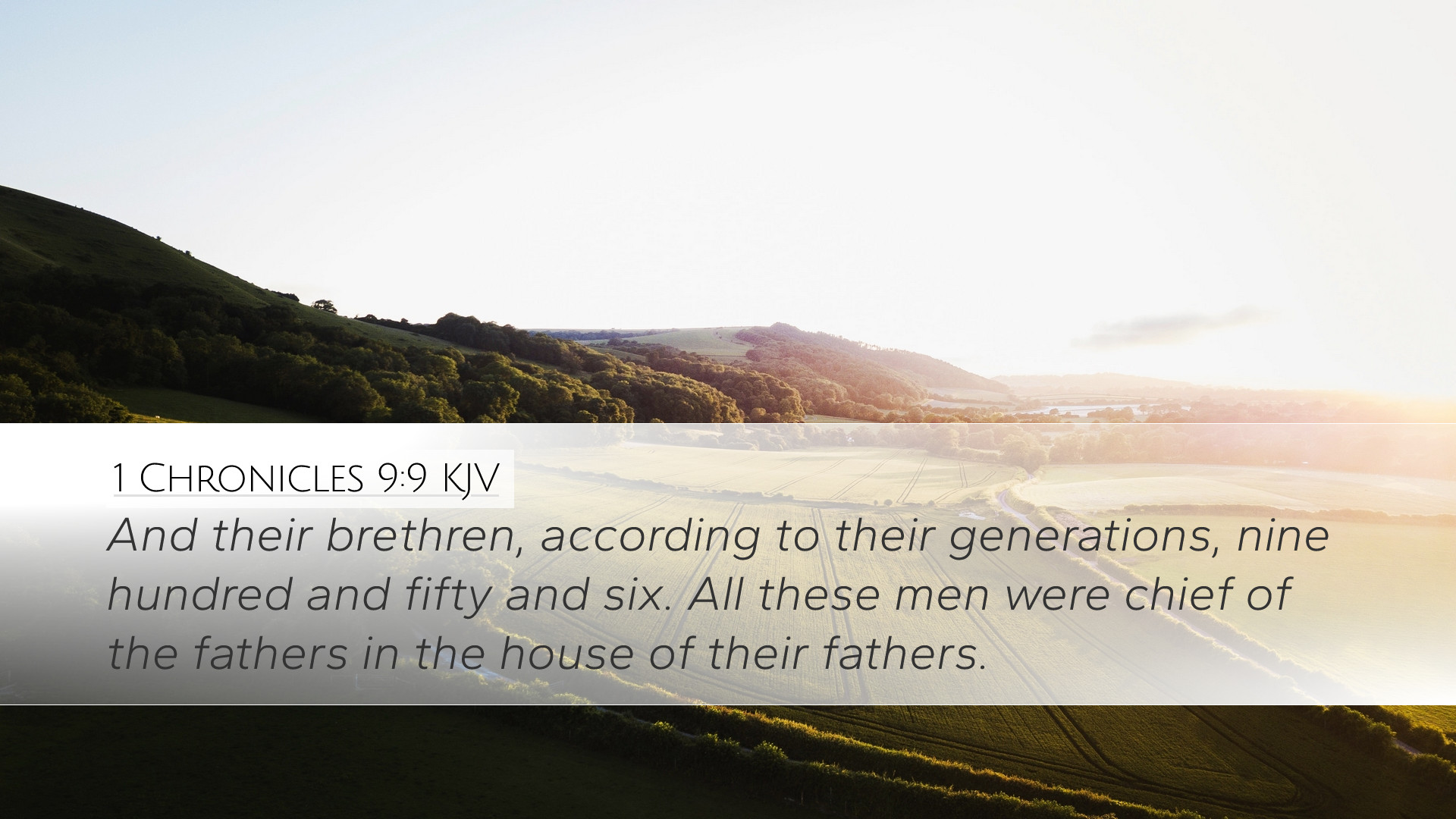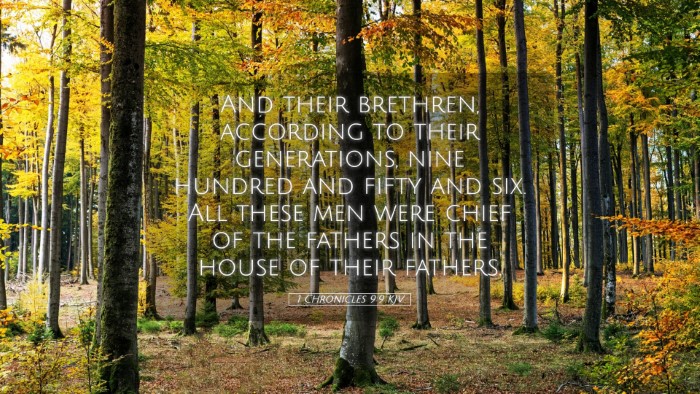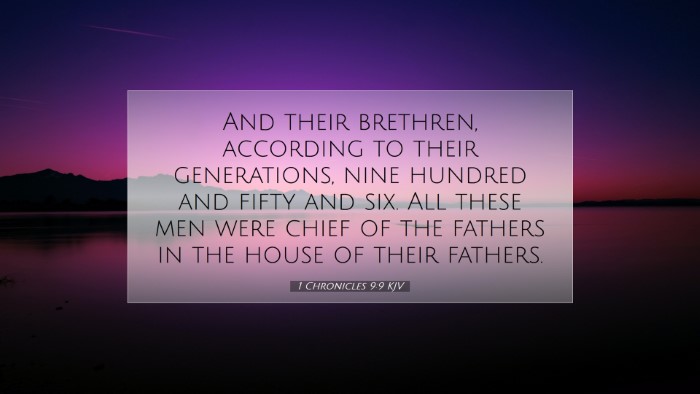Commentary on 1 Chronicles 9:9
1 Chronicles 9:9 states: "And their brethren, according to their generations, nine hundred and fifty and six. All these men were chief of the fathers in the house of their fathers."
Introduction
The book of 1 Chronicles serves as a vital account of Israel’s history, focusing on the genealogies and the priestly and Levitical heritage. In this verse, attention is drawn to the lineage and roles of the Levites and priests, highlighting their significance within the religious and social framework of the Israelite community.
Contextual Analysis
Matthew Henry posits that the genealogical tables in Chronicles, including this verse, emphasize the importance of understanding one’s heritage and the roles of families in God's plan. This verse appears amidst a catalog of names and numbers, which may seem dry to the modern reader but was vital for maintaining order within the tribes of Israel.
Key Themes
- Heritage and Identity: The mention of the "brethren according to their generations" reinforces the idea that identity and lineage play a crucial role in the community. These men are acknowledged not just by their names but through their familial connections.
- Leadership and Authority: The role of these individuals as "chief of the fathers" signifies their leadership within their households and communities, underscoring the theme of authority as divinely appointed.
- Covenantal Community: The chronicler’s detailed record reflects the covenantal community that God established with Israel. Adam Clarke remarks that the order and structure within the genealogies represent the divine order of worship and service in the sanctuary.
Exegetical Insights
Several public domain commentaries provide further depth to the interpretation of this verse. Albert Barnes notes that the number "nine hundred and fifty and six" could indicate a specific group of Levites who served in particular capacities. This precise accounting is significant as it reflects a structured approach to ministry and service in Israel's worship.
The genealogical lists serve not only to document family lineages but also to delineate responsibilities within the religious structure. Each individual mentioned carried with them the legacy of their ancestors’ faith and duties weighed heavily on their lineage.
Theological Implications
The passage invites ongoing reflection among pastors and theologians about how biblical genealogies inform our understanding of identity in Christ. Just as the Israelites were identified by their tribes and genealogies, believers today find their identity in Christ and are part of a new spiritual heritage.
Furthermore, the notion of leadership in spiritual matters resonates in today's church context. Effective leadership requires a clear understanding of who we are in Christ and the responsibilities we bear as heirs and co-laborers in God's mission.
Practical Application
- Encouraging Family Heritage: Leaders in the church can engage families by teaching the importance of spiritual heritage and identity, encouraging members to connect with their lineage of faith.
- Recognizing Roles in Ministry: This passage can inspire church communities to appreciate and acknowledge various roles and gifts that individuals bring to the body of Christ, promoting unity and collaboration.
- Teaching on Servanthood: The responsibility highlighted in this verse is a reminder that service to God is not just a personal endeavor but a communal one, where each plays a role in the well-being of the entire congregation.
Conclusion
1 Chronicles 9:9, while a simple enumeration, carries profound implications for understanding genetic, spiritual, and communal identity. The insights from commentators like Matthew Henry, Albert Barnes, and Adam Clarke allow us to appreciate the intricate tapestry of Israel’s spiritual lineage and its relevance in our lives today. As pastors, students, and scholars delve into this passage, they will discover rich meaning that speaks to their practice of faith, the importance of community, and the legacy of God's people across generations.


